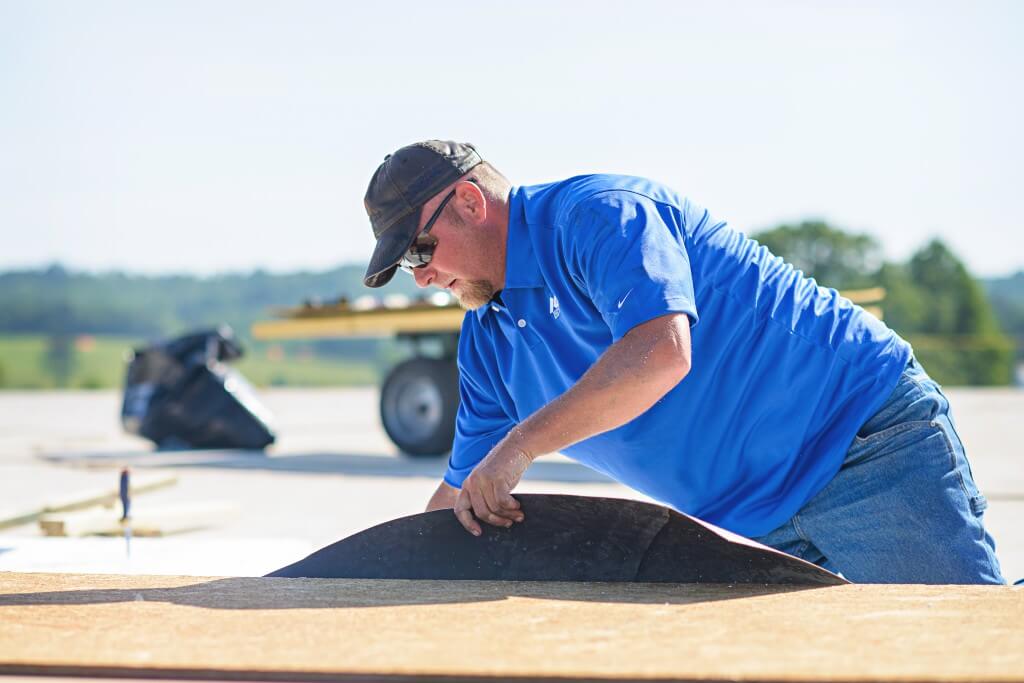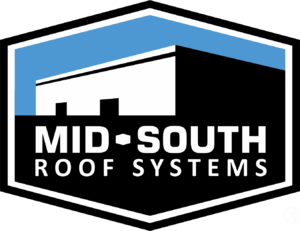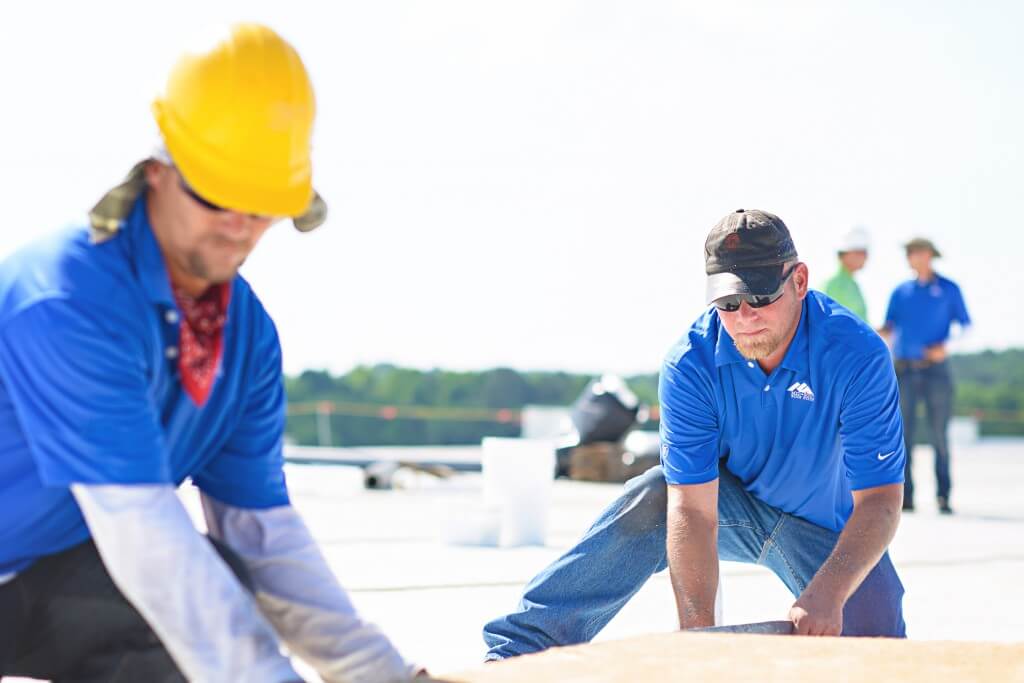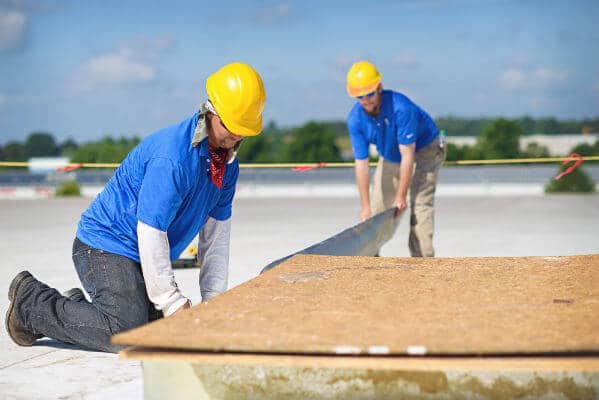Walk Pads: Putting a Roof Over the Head of Your Roof


Even the heftiest among us aren’t going to damage a roof just by walking on it, but frequent impacts from sharp objects and heavy tools can and hurt commercial roofs. Manufacturing facilities—with their rooftop machines that require constant maintenance—are especially susceptible to rooftop wear and tear.
Walk Pads — The Roof on Top of the Roof
If you own a building with a high-traffic roof, you have to take extra steps to minimize damage.
Walk pads are thick strips made of the same material as the roof itself. They should be placed around the machines and systems that require frequent maintenance. These walk pads will absorb the impacts, scratches, and punctures that result when pieces of a unit (a sheet-metal HVAC door, for example) or heavy tools are dropped or tossed aside.
Walk pad layouts are another option. These are predetermined paths that tell workers where to walk. Walk pad layouts work great—as long as the workers walk where they’re told, which they seldom do. These are often a waste of time and money. It is better to create a perimeter around the unit or machine in question.
Common items that need to be serviced on the roof of a manufacturing plant:
- HVAC units
- Large air-conditioning units
- Pumps
- Industrial machines that function inside the building
- Outlets
- Vents
- Power stations
Some tasks that may need to be performed on the roof:
- Replacing filters
- Balancing units
- Recharging Freon elements
All of these tasks involve taking things apart that are made of sharp, heavy metal. In the days before single-ply materials, roofs were made of multiple layers. These roofs were expensive and labor intensive, but man, they were durable. Single-ply roofs more economical and easier to install, but they are undoubtedly more susceptible to damage.
A lot of businesses shun the short-term cost of putting walk pads around units. This will very likely lead to much bigger long-term repair costs down the road. Your roof protects your building—pay it the same consideration and protect your roof.
LIKE WHAT YOU JUST READ?
Sign up for our newsletter to get fresh articles, updates and more!
Assess, Report and Decide: Get to Know Your New Building’s Roof
If you’re considering buying a new building, the very first item on your list should be to get an assessment of the roof’s condition. This analysis can prevent surprises down the line and—if the roof needs work—it can have a dramatic effect on the price you wind up paying for the building.
Why You Need A Roofer Onsite When You Install Your HVAC System
It’s common to place the heating, ventilating and air conditioning (HVAC) systems for large buildings on the roof. A successful rooftop HVAC installation usually involves the collaboration of an entire team of workers, so that issues related to the roof, structures, electrical and HVAC can be discussed beforehand. If an HVAC system is not coordinated…


